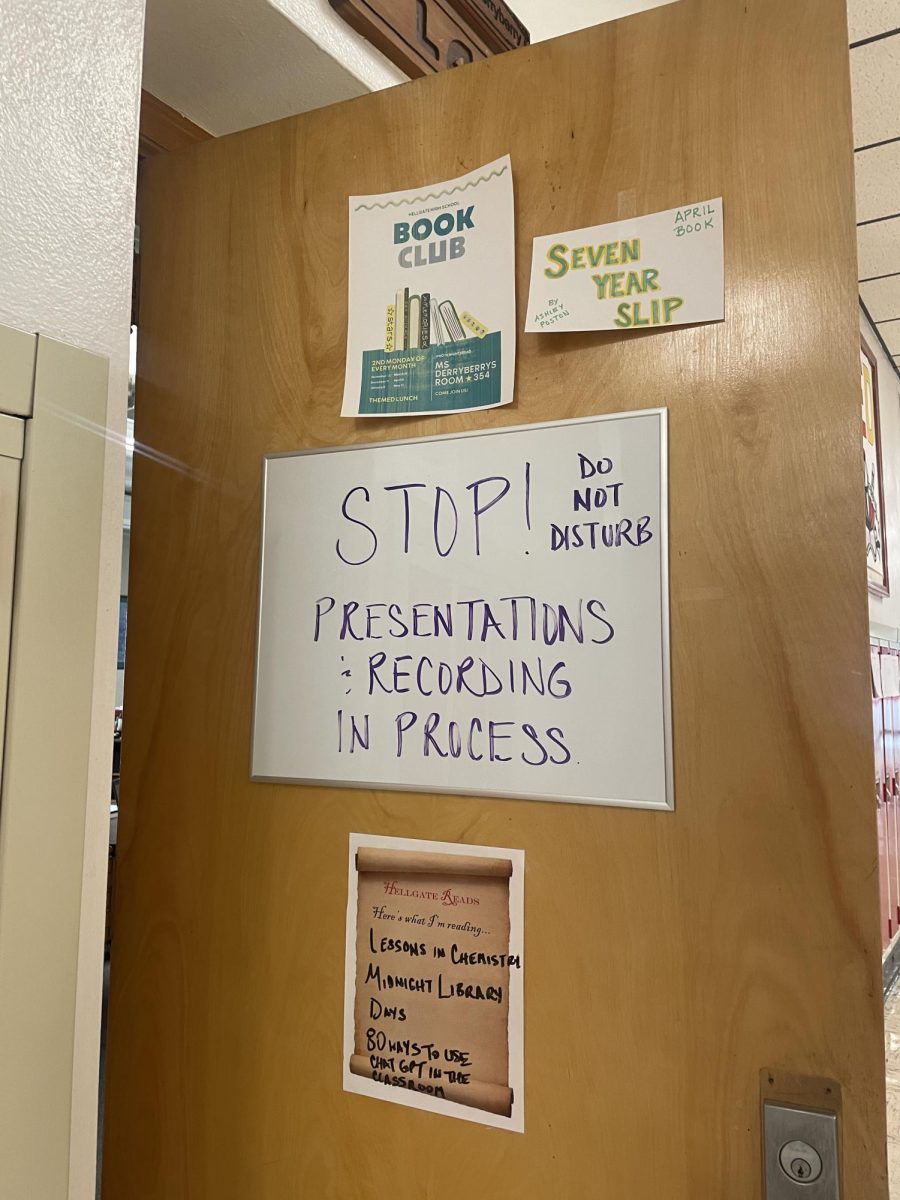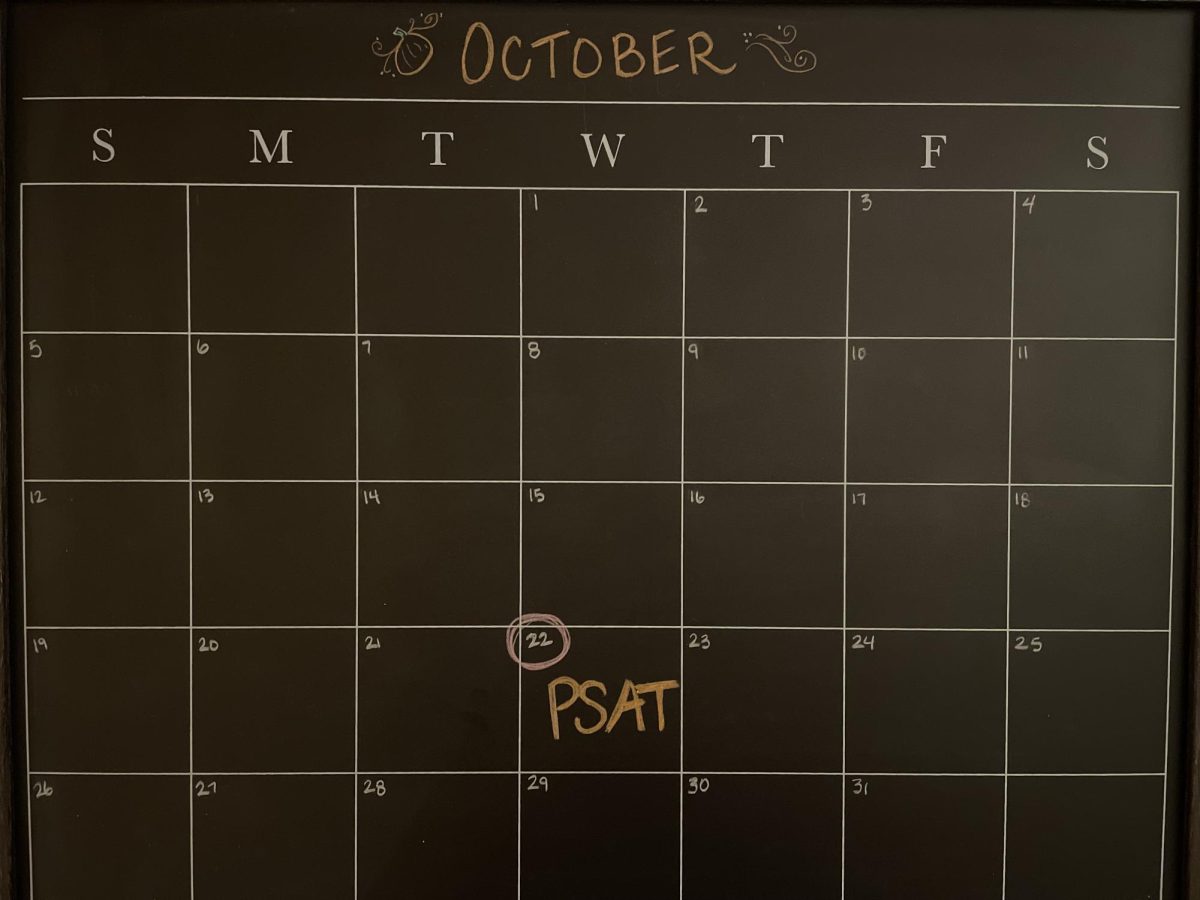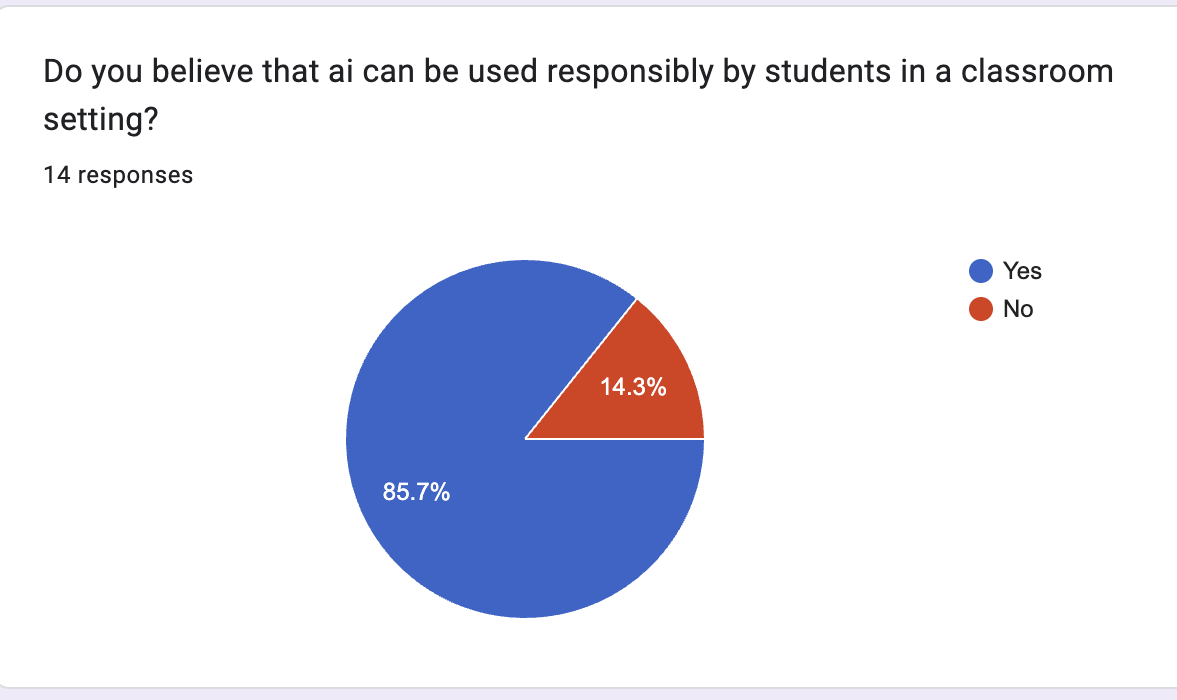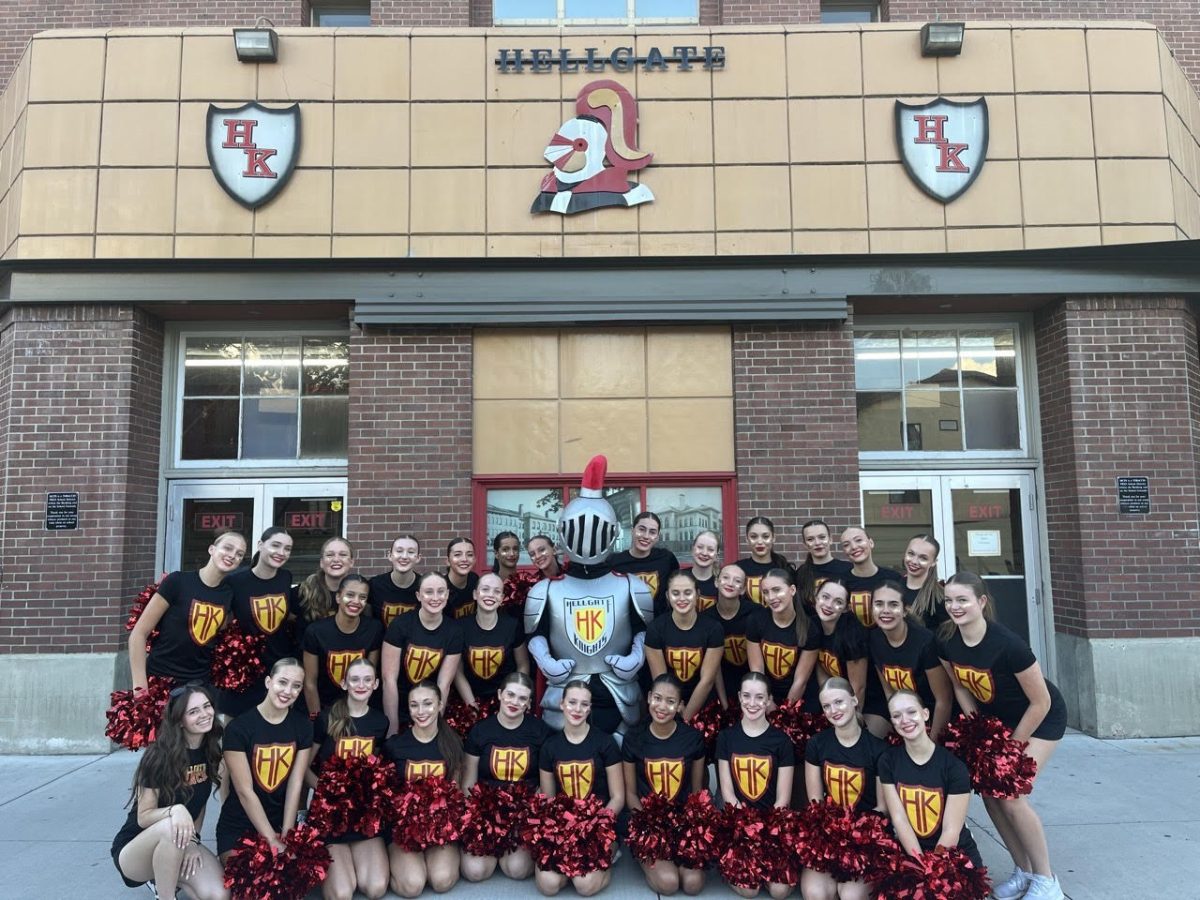Springtime in the Hellgate upper gym often consists of tables lined up to prepare for a wide variety of standardized tests. Advanced Placement and International Baccalaureate tests are among the exams that students spend the weeks leading up to April studying for, and this year, the examinee numbers have grown significantly across all AP and IB tests.
“At Hellgate we have 100 more students taking an AP or IB exam than we did last year. While at the same time we have another group of students who are taking the course for the but not taking the exam,” said AP/IB coordinator, Kye Nuttall.
Standardized tests have been heavily disputed over the significance and usefulness of them in terms of measuring and predicting success. “There has been a movement in college admissions to be test-optional. The schools being applied to were waving the ACT, SAT, AP, or IB exams and using other means to decide who got to attend their schools. Covid accelerated this idea as the ability to take the tests was restricted,” said Nuttall. However, the recent uptick in exam takers shows that this might be temporary. “I think the pendulum is going to start to swing the other direction now and that the high stakes tests are going to become more prevalent as the college admissions process becomes more competitive,” said Nuttall.
Hellgate senior Gilly Millar is taking two IB tests and one AP test this spring. “I decided to take the test because the class is oriented towards the test and teaches you the curriculum so you can succeed on the test,” said Millar. “Especially for the IB tests that I’m taking, IB History and IB English, are both two year classes that have been preparing me for the test so I decided to, you know, finish off the curriculum with the test.”
Millar said that the decision for taking the test also was in part due to the fact that her college takes AP and IB credit for passing scores. “If I can get out of a history credit for college I would like to do so, so if you can get credit for it you might as well try, ” said Millar. Overall she thinks that taking the tests have been worthwhile and is why she is choosing to take three at the end of her senior year. “I think it’s worth it if you’re taking the class, especially because you’re learning all this material.”
Hellgate AP Chemistry teacher Lisa Ratz said that the entirety of the class she teaches is geared towards the test. This is common among the AP and IB classes, and because of this, taking exams is something that is strongly encouraged by many teachers. “Specifically for chemistry, because in our chem one year, we cover fewer topics, we spend a lot of time just creating the foundation of chemistry and then by taking AP, weather you’re taking the exam or not, you’re getting exposed to a lot more of the topics that a lot of high schools see in the first year. And so I think you can leave Hellgate more well rounded,” said Ratz. Ratz’s take on the topic is shared among a lot of teachers as taking the class, exam or not, pushes students to excel and come out of high school prepared for college.
Ratz has roughly over half of her total AP students taking the exam this year. She sees more people taking the exams and a general upward trend of test takers in her class as well. Ratz attributes a lot of this to the price of college: “If you can pay 90 dollars for a test and pass it and get that credit for college, that’s so much cheaper than a three credit class for college.”
Similarly, Hellgate IB English year two teacher Anna Bacon works throughout the two-year curriculum that is IB English to prepare for the final evaluations. “I think the whole class is based on preparing each kid for the exams specifically, but we’re not necessarily teaching to the test,” she said. “We’re teaching kids strategies and things to be as successful as possible.”
Though debated among students, Bacon feels students should try taking the exam. “I totally think it’s worth it. First, I think the exams are very very difficult, don’t get me wrong, they’re very hard to pass, but I think it’s really really good practice if kids are college bound,” said Bacon.
Nuttall echoed this statement as he said that the general fear of not passing the exam shouldn’t outweigh the students ability to try. “I am of the opinion that you have to get out of your comfort zone to challenge yourself and grow. If you are going to go to college, then an AP or IB exam is the closest thing that you can take that is a semester final and good preparation.”
Nuttall also said that often the standardized test can reflect future success. “There was a study by Yale that came out last month that said the biggest predictor of a student being successful in college and completing their degree was success on a standardized test such as the ACT, SAT, or success on an AP or IB exam. Those students who did not do well, relatively speaking as we are talking about Yale, did not complete their degree. But I think that this is a situation where coming out of COVID the meaning of grades earned might come under more scrutiny. A nationally normed test with set expectations of success, is a better predictor of future college success than what grade you earned in high school.”
While standardized tests make their way back into education, there are still a significant number of students who take the courses and choose to opt out of the exam. Bacon said only roughly a quarter of her students are choosing to take the exam. “I think a lot of students are taking the course in particular in order to get a little bit more of a challenge, a quicker pace, it also can look good on resumes for colleges.”
Exam or not, Bacon still sees AP and IB classes as extremely beneficial for students to take. “I’m always honest with kids though, if they know that their college or university does not accept IB credit, then they might as well not take the exam and waste their money.”
Bacon sees the rise in students applying to competitive colleges partially the reason for the uptick in exam takers. “I also see students who are just really high achievers taking the exam, but I also see students who are incredibly capable of passing the exam not taking it because they are like ‘if I don’t need it for college’ I’m not gonna waste my money.’”
Nuttall also said that different colleges view the exams differently. “This is a mixed situation and the first thing that I tell students when they register for an exam is to check the policies of the schools they are applying to and find out their AP/IB acceptance. In talking to the college recruiters that visit Hellgate it seems there are schools that will accept the exams and there are schools that will look at the exams as prerequisites in the admissions process.”
Millar said that she sees about a half and half split between her peers who choose to test and who don’t. “I know the people who aren’t taking it mostly aren’t taking it because they can’t apply the credit,” said Millar.
College preparedness is one reason that Nuttall feels more students are choosing to take the exam and that they are worthwhile. “Students who have also taken the AP or IB exams know what it is like to sit for a semester final exam at the college level after having had that similar experience of taking a high stakes exam while in high school. To make a long answer short, yes I think it is worth it to take an AP or IB exam if you are planning on going to college after high school.”







